Forcing people who vape to huddle outside in doorways with smokers is ‘totally barbaric’, behavioural science guru Rory Sutherland has claimed.
The vice chairman of advertising giant Ogilvy called for designated vaping rooms in offices so workers trying to quit cigarettes can stay away from temptation.
He also accused politicians and campaigners of a having ‘knee-jerk’ desire to ban vaping, which he described as his ‘salvation’ because it stopped him relapsing into cigarettes.
‘It probably came from a lot of middle-class people who didn’t have a lot of smokers in their milieu,’ he said. ‘The chattering classes probably saw vaping as a kind of reversal because their own social set doesn’t have many smokers.
‘But it seems extraordinary that people who are well-intentioned [want to ban it]…with so little evidence to the contrary.
‘[The law] is being formulated by people who are not only non-smokers but probably have never smoked.’
Mr Sutherland’s analysis of how human behaviour affects society and influences marketing have made him a cult social media star, with 240,000 followers on TikTok.
Speaking on the Smokeless Word podcast, he said he had a row with his bosses at Ogilvy, which inspired the TV series Mad Men and whose clients have included Rolls Royce, Dove soap and BP.

Rory Sutherland has called for designated vaping rooms in offices so workers trying to quit cigarettes can stay away from temptation
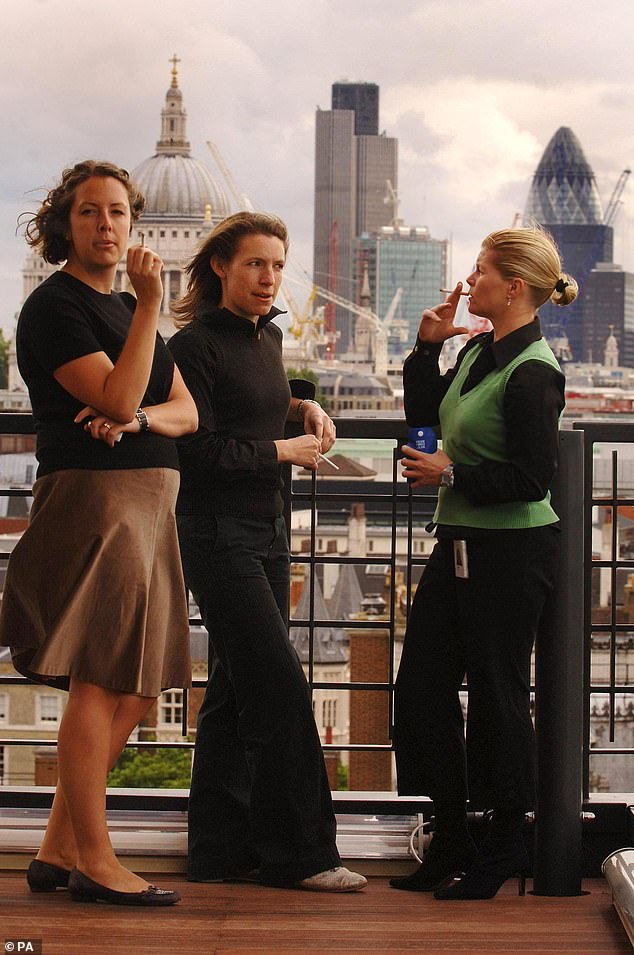
A group of female British American Tobacco employees take a cigarette break in the company’s new rooftop smokers area in 2007

Mr Sutherland’s analysis of how human behaviour affects society and influences marketing have made him a cult social media star, with 240,000 followers on TikTok
‘They said we’re going to ban vaping,’ he said. ‘Why can’t you have a vaping room in the office? There’s no legal prevention on this. It’s bull****. People say it’s illegal, it’s not.
‘By forcing the vapers to go outside and stand with the smokers you are exposing people to temptation.
‘It’s like holding a meeting of Alcoholics Anonymous in a pub. You wouldn’t do that, would you? Forcing vapers to go and stand outside next to the smokers strikes me as totally barbaric.’
He added that the best thing the Government can do sometimes is ‘just stand back and get out of the way’.
‘The balance of probabilities is that this is harm reduction, at least,’ he said. ‘We should at least give it a fair watching-brief trial and see what happens.’
Smoke-free legislation was introduced in England in 2007, banning smoking in nearly all enclosed workplaces and public spaces, following similar bans in Scotland and Wales.
The rules also put an end to smoking rooms which had provided a haven for smokers at work until then.
They were so prolific that one of them was used as the setting for the BBC sitcom The Smoking Room, which starred Peep Show’s Robert Webb and ran from 2004 to 2006.
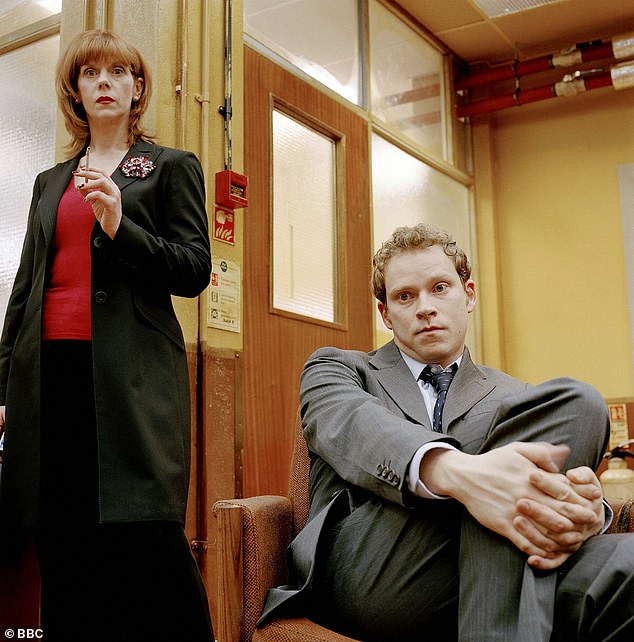
Smoking rooms were so prolific that one of them was used as the setting for the BBC sitcom The Smoking Room, which starred Peep Show’s Robert Webb
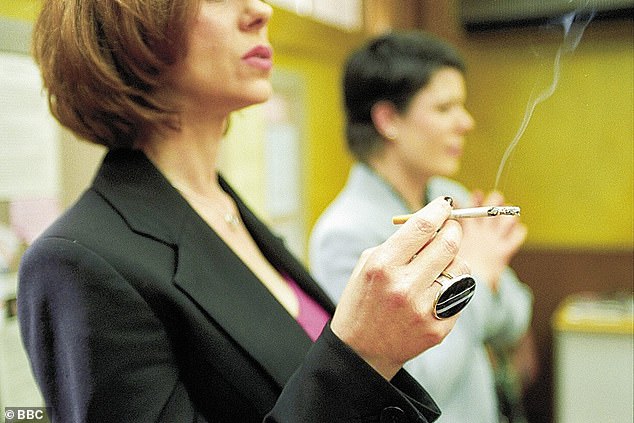
Smoking rooms in workplaces were closed after the smoking ban came into force in England in 2007
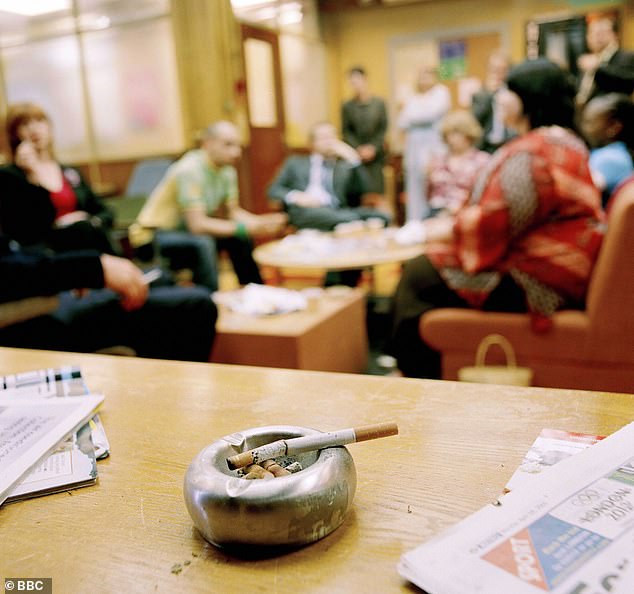
The TV show ran from 2004 to 2006, but had to close when the smoking ban came into force
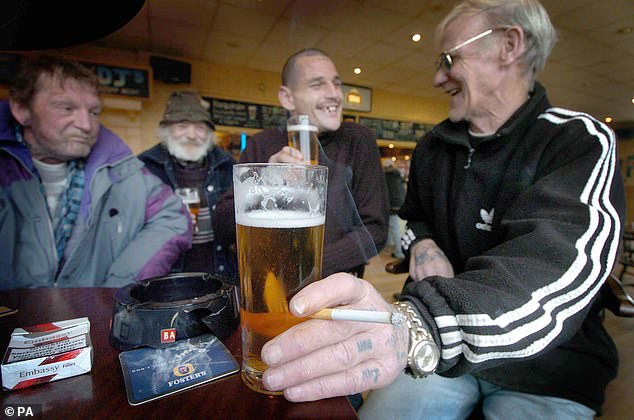
A man holds a cigarette at the Limerick pub in Tipton, West Midlands, in November 2004
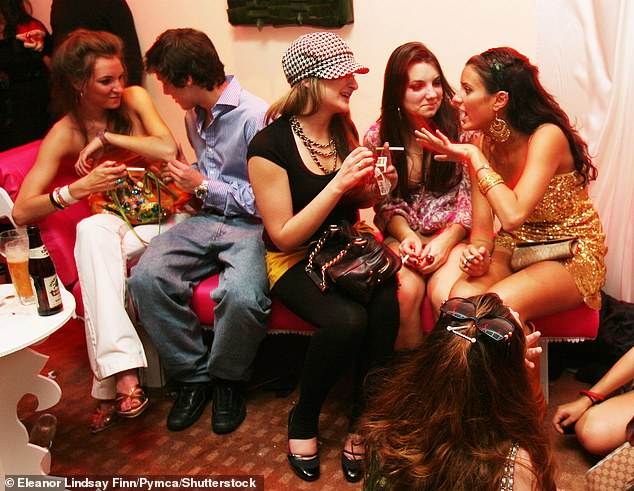
A group of women smoke as they chat at the Nobu Metropolitan Hotel in London in 2006
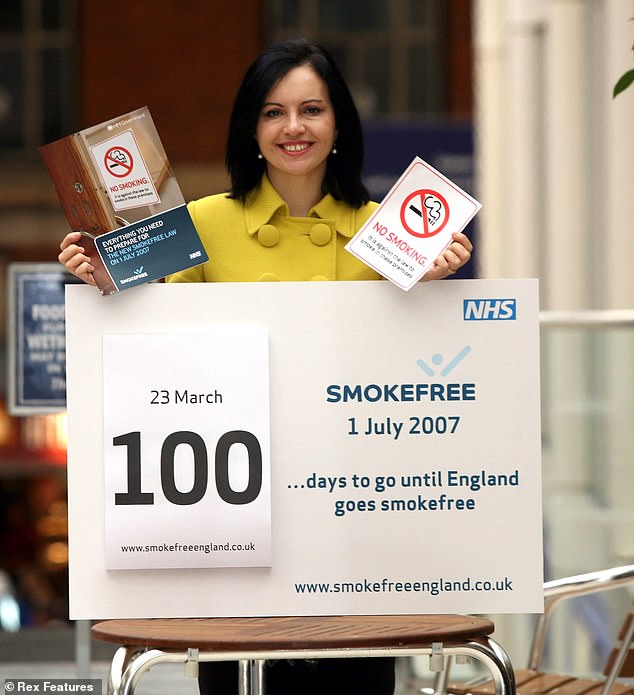
Then-Public health minister Caroline Flint launched a 100-day countdown to a ban on smoking in public places at a Wetherspoon pub in London Victoria station on March 22, 2007
Employers now have a legal obligation to make sure no smoking occurs on the work premises and in certain workplace vehicles.
And although employers aren’t required to provide smoking shelters or designated smoking areas, if they do it must be outdoor and not fully enclosed.
But the smoking ban does not cover vapes, meaning employers have varying rules on using them at work.
Since June 1, disposable vapes have been banned in the UK. With the Tobacco and Vapes Bill, the government also aims to ban tobacco products for anyone born after January 1 2009, and bring in further restrictions on the advertising and sale of vapes.
Politicians have called for shops selling vapes to be licensed like alcohol outlets to prevent them getting into the hands of children.
Caroline Johnson MP, a paediatric consultant, said: ‘The market for selling vapes and other nicotine products needs to be tightened. If people needed a licence to sell vapes, it would make it easier to enforce the law, because they could immediately lose their licence if they sold them to children.’
‘I would also like to see a restriction on vaping in public places, to match smoking. People may say it’s ‘nanny state’, but most people don’t want to live in a candy floss and blueberry-scented fog.’
In a recent nationwide poll, think-tank Britain in Focus found most people are concerned by the number of youngsters puffing on brightly coloured disposable vapes, and shocked to learn that shops do not already need a licence to sell them.












